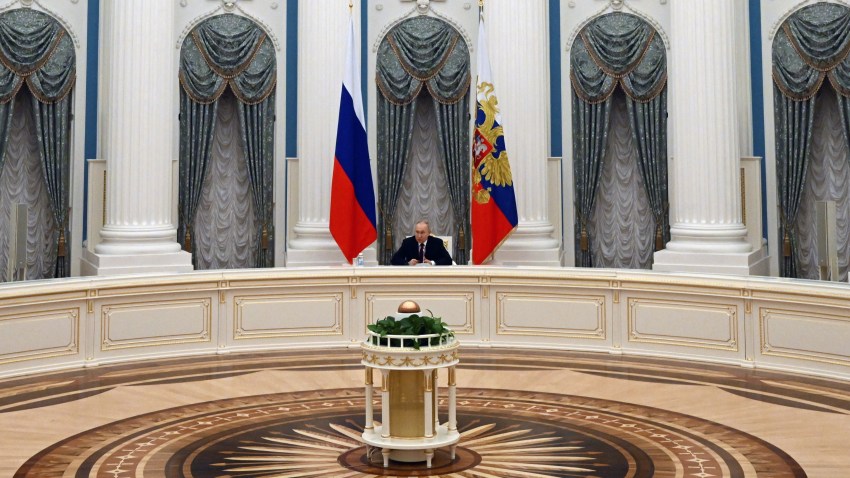To absolutely nobody’s surprise, Russian President Vladimir Putin “won” the country’s latest electoral charade. The exercise, which ended Sunday, secured Putin a fifth term in office atop an autocratic regime increasingly centered around one man, with no designated successor and no sign that opposition will be tolerated from inside or outside his tight circle of control. Everyone’s fate is in Putin’s hands, and defiance can mean death.
As other autocrats have discovered, anointing or even subtly pointing at a successor can prove risky. On the surface, a succession plan can foster stability. But it also automatically creates a new center of power, one that can ultimately become a threat. That is most likely the reason why Putin has not signaled a preference for whom he would like to see in power when his presidency ends, if he has made such a determination. Instead, he opts to fortify himself and let potential successors compete for his personal favor.
Putin cut his teeth in politics in St. Petersburg in the 1990s, after having spent decades working in the shadowy Soviet-era KGB. His spectacular rise to national power began in 1999, when then-President Boris Yeltsin unexpectedly named him prime minister. Yeltsin resigned months later, and the 46-year-old former spy became acting president. He promptly won the 2000 presidential election, his popularity propelled by the brutal military campaign he had already launched against Chechen separatists.

